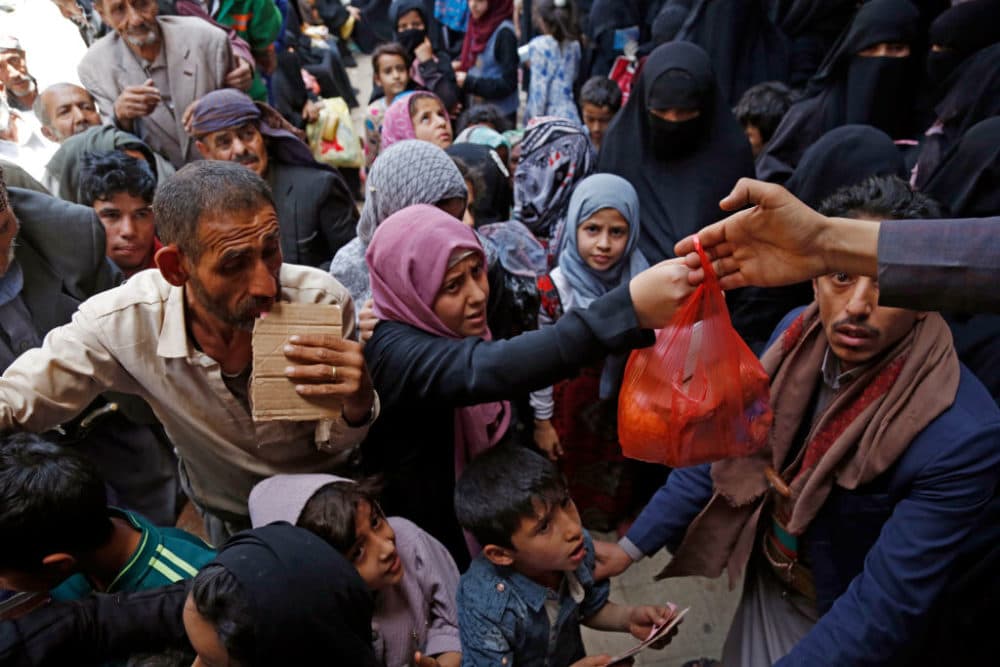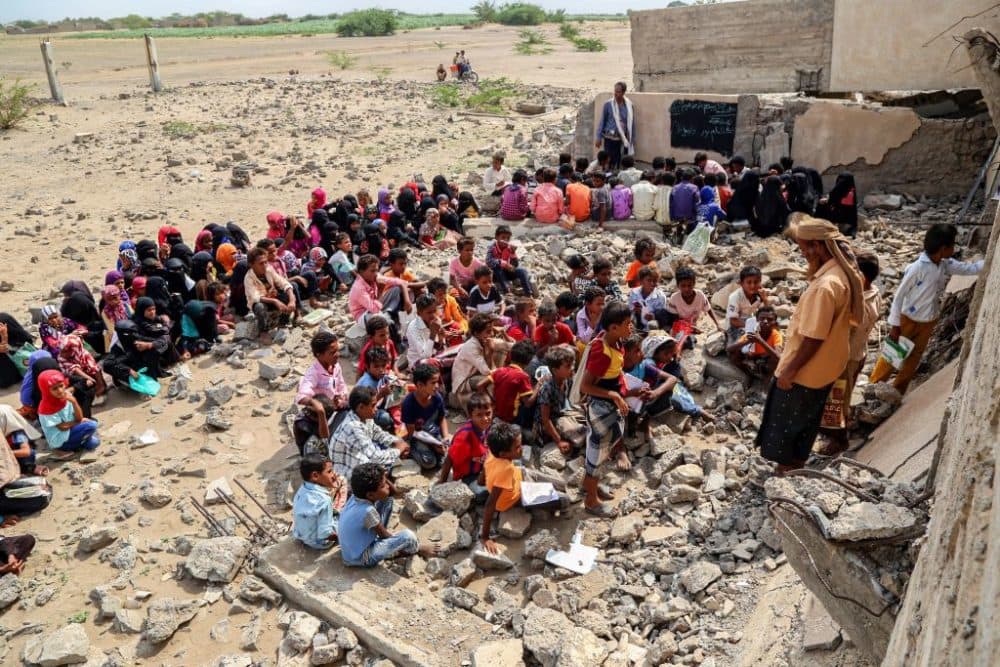Advertisement
Commentary
In Yemen, our collective sin goes beyond indifference

“We have returned to pre-civilization …There’s no clean water to drink. Every day, children and elderly people line up with pots at tankers donated by some doer of good…Women and children fight over scraps from rubbish piles. Families sleep outside. People are relocated to miserable camps on the outskirts of cities and left there, abandoned by the world, forgotten.”
Thus is life in Sanaa, Yemen, in 2022, writes the journalist Bushra al-Maqtari.
When Russian troops poured into Ukraine in February, the war in Yemen, classified by the World Food Program (WFP) as the “The world’s worst humanitarian crisis,” had entered its seventh year, killed almost 400,000 civilians, and left 16 million people on the edge of starvation.
While the latter conflict has garnered wall-to-wall media attention, the crisis in Yemen remains largely a below-the-fold story. One war is waged against the white, Christian population of a relatively prosperous European state, the other against the Muslim inhabitants of the poorest country in the Middle East. Our disparate concern indicts us, betrays our bigotry.

Our collective sin goes beyond indifference, however. The catastrophe in Yemen has been in large part bankrolled by American taxpayers. Since the conflict began in 2015, the U.S. has funded the war effort against Iranian-backed Houthi rebels by Saudi Arabia and the United Arab Emirates to the tune of $55 billion. The U.S. has also provided logistical and intelligence support valued at at least $319 million. The recipients of this money have spent it on a dazzling array of war crimes including air strikes against civilians (carried out by American-trained pilots in U.S.-supplied aircraft) and an indiscriminate naval blockade that is depriving the civilian population of basic necessities. Tactics befitting the Bronze Age are being carried out with modern weapons, in our name.
To his credit, President Biden has broken with the policies of his predecessors and, in February, announced that he would end support for the Saudi war effort in Yemen, but the actions of the administration have fallen short of his rhetoric.
While the president committed to ending support for offensive operations by Saudi Arabia and the UAE in Yemen, the U.S. continues to sell weapons designated as “defensive” to both countries and to service contracts for spare parts to the Saudi air force. An analysis by the Quincy Institute for Responsible Statecraft concluded that these actions are actively supporting the Gulf coalition’s ability to wage war.
Tactics befitting the Bronze Age are being carried out with modern weapons, in our name.
The Yemen War Powers Act, first introduced in July by Democratic Senators Leahy, Sanders and Warren, would end U.S. intelligence sharing with for the purpose of supporting Saudi-led airstrikes, end logistical support for coalition airstrikes (including the provision of spare parts), and prohibit U.S. military personnel from being assigned to support the Saudi-led coalition without statutory authorization. Beyond the moral imperative, there are compelling strategic reasons for Congress to pass this resolution without delay.
Since August, the conflict in Yemen has been paused by a fragile truce set to expire on Oct. 2. Removing the surety of U.S. support would put pressure on the Saudis and their Gulf partners to continue the ceasefire and to work to bring the conflict to a more permanent conclusion.
Further, passage of the resolution would increase the credibility of the U.S. as we work to hold together international partners in condemning and isolating Russia for its illegal and barbaric invasion of Ukraine and the human rights violations it has committed during that war. It is only reasonable that we hold our purported allies to the same standard that we hold Vladimir Putin.
Finally, from a domestic perspective, after generations of ceding its war-making powers to the executive branch, taking bold action on this issue will help Congress reassert its authority and accountability in a bipartisan manner in matters of foreign policy. It would be a welcome tonic for our ailing republic.
Saudi Arabia’s record on human rights is appalling. As long as it is funded by American treasure, we are partners in these atrocities. It is long past time that we hold its regime accountable for how our money is spent.
